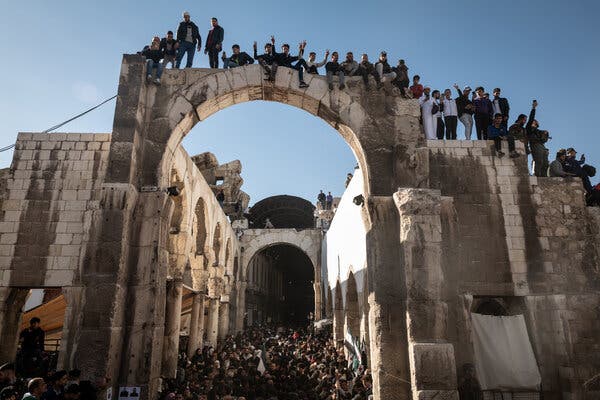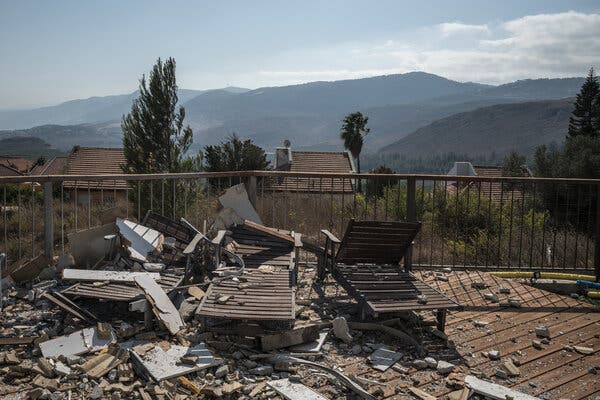News Analysis
In the immediate aftermath of the Hamas-led attacks on Oct. 7, the president stepped in to support Israel, counsel moderation and seek a lasting peace.

Ten days after Hamas terrorists killed more than 1,200 people and took 250 hostages last year, President Biden flew to Tel Aviv and vowed to protect Israel, minimize civilian deaths, deliver humanitarian aid and bring lasting peace to the region.
What followed was a year of political and social turmoil inside the United States, repeated clashes with Prime Minister Benjamin Netanyahu about the aggressiveness of Israel’s response and a conflict that has spread across the Middle East.
The events since Mr. Biden’s remarks have demonstrated the limits of his influence in the region. Even as the United States has continued to arm Israel, the administration has been repeatedly thwarted in reining in Mr. Netanyahu, who has sidestepped or dismissed entreaties from the White House to de-escalate the conflict and leave room for a postwar creation of a Palestinian state. And with Israel now poised to carry out retaliatory strikes against Iran, the wider war that Mr. Biden sought to avert is at hand.
“The gap between what Biden hoped to achieve and what ultimately he was forced to encounter is as wide as the Grand Canyon,” said Aaron David Miller, a senior fellow at the Carnegie Endowment for International Peace.
In the 2020 campaign, Mr. Miller said, Mr. Biden promised voters that “America was going to be back, it was going to lead again” on the international stage. But the year since the Oct. 7 attacks in Israel “shows the limitations of American influence and power.”
On Monday, Mr. Biden marked the first anniversary of the Hamas-led attacks by lighting a yahrzeit candle in memory of the dead during a ceremony in the Blue Room at the White House. Rabbi Aaron Alexander of Adas Israel Congregation in Washington conducted a brief ceremony, praying for “the souls of the holy ones, men, women and children who were killed on October the seventh.”



